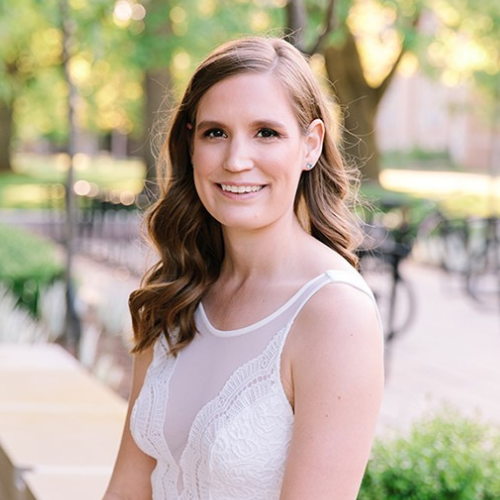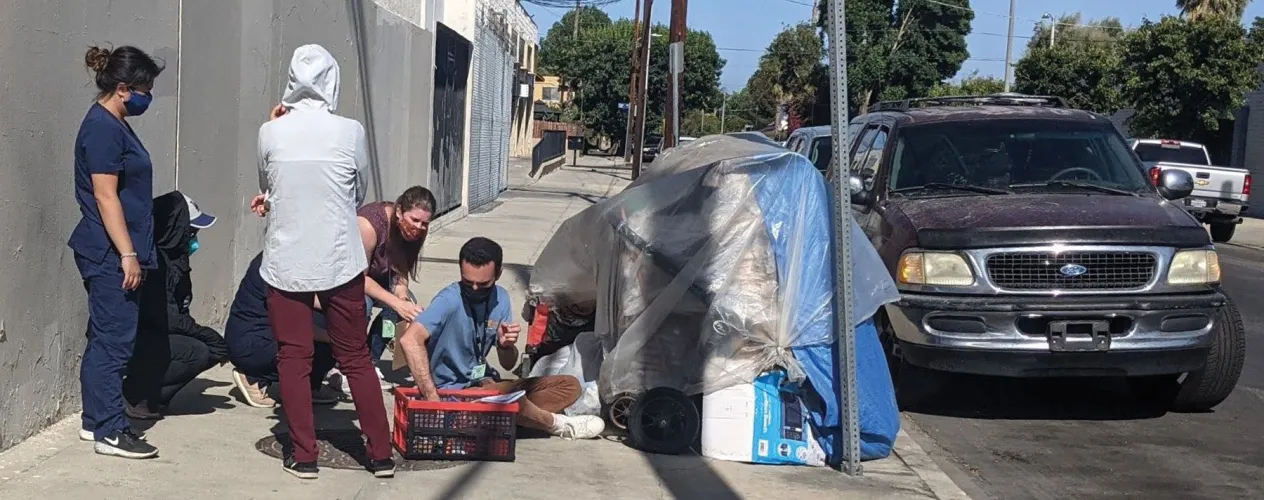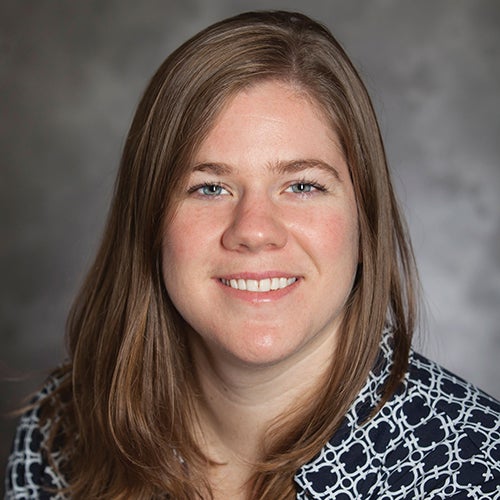
Prepared to Act
As the magnitude of the COVID-19 pandemic became clear, two FSPH doctoral students felt compelled to contribute to the public health response. The students describe how their UCLA Fielding School education equipped them to make a difference, and what they learned from their experiences.

Becca Woofter, MPH
PhD Student, Community Health Sciences

As the coronivirus pandemic began during my first year as a doctoral student in public health, I hoped for an opportunity to serve my community. That opportunity came in the form of the COVID-19 Virtual Training Academy (VTA), a joint effort among the Fielding School and Extension at UCLA, UC San Francisco, and the California Department of Public Health to train contact tracers and case investigators to respond to COVID-19 in the state.
Two months into the pandemic, I was invited to participate alongside UCLA and UC San Francisco graduate students and professors, as well as state health department employees. As a member of the VTA, I coached state government workers, many of whom had no background in public health, through the contact tracer and case investigator scripts. We used small-group exercises to teach contact tracers the basics of COVID-19 preventive health behaviors, motivational interviewing, resource referrals, and consideration of the needs of callers they might encounter. We also provided training for groups and institutions outside of California, including sessions for contact tracers and case investigators in Guam.
The VTA formation happened quickly to respond to the pandemic, with our training modules growing over time — adapting as the pandemic progressed and in response to participant feedback. I was also able to apply my own research interests to create a training module for the needs of immigrant communities in California.
This work required an unusual combination of academic expertise in epidemiology and the interpersonal skills to successfully motivate trainees and facilitate group exercises. I leveraged my MPH in epidemiology and time as a teaching assistant, as well as my extracurricular experience serving on a peer-counseling hotline and facilitating training sessions on sexual violence awareness. Through the VTA, I also met dozens of dedicated and enthusiastic public health professionals and saw firsthand the intersection of public health policy and health behaviors. When the days were long and emotionally taxing, these colleagues and the VTA leaders were supportive and reinforced how important this work was for our community. I am grateful for the opportunity to have contributed to the COVID-19 response in California through the VTA, and will use this experience to inform my future work in public health.
Anna Bratcher, MSPH
PhD Candidate, Epidemiology

At the beginning of the pandemic, I listened to the 8 p.m. cheer for healthcare workers every day. I would awkwardly stand in front of my living room window and feel like I wasn’t in the right place — I wished I were out there, making a difference. I went into public health to help people, so when a call for volunteers went out, I was eager to pitch in.
Since then, I have assisted the Housing for Health division of the L.A. County Department of Health Services in its COVID-19 response for people experiencing homelessness. I have had the opportunity to get out in the community, volunteering at testing events and vaccination clinics. I was even welcomed into the strategic side of the response, assisting with designing studies and ensuring a data-driven approach.
I have already learned many things in this role, but the most interesting lesson has been the distinction between “helping” and “serving.” When I listened to the 8 p.m. cheer, I had an urge to help — a vague impulse to swoop in and make things better according to my definition of that word. It wasn’t until I had been to a few in-person events that I realized I was actually there to serve. No one on skid row needs me to survive; they are already doing that. Instead, I needed to approach this work by identifying specific areas where I can contribute. I have found that my best contribution is through applying epidemiology to specific needs, such as assessing rapid-testing machines and quantifying exactly how many individuals are unsure of receiving the vaccine.
In this way, FSPH has given me the tools needed to truly serve the community. The data analysis skills I have gained through courses and research at the UCLA Fielding School have allowed me to bring valuable epidemiology expertise to the table. Through my FSPH education, the vague desire to help my neighbors has been sharpened and focused into something more real: the ability to collaborate with a population to serve its public health needs.